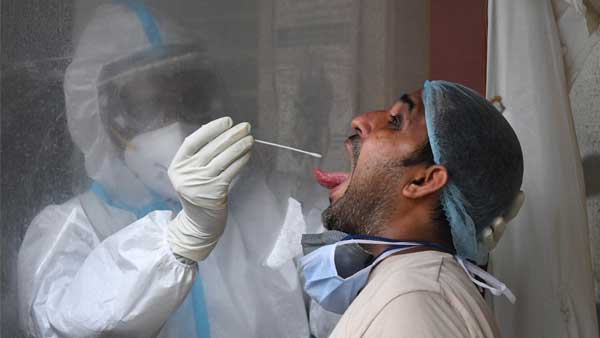Mutant Coronavirus strain: India reports 6 cases as UK returnees test +ve
New Delhi, Dec 29: India has recorded six cases of mutant strain of coronavirus, which is experts say 70 per cent more infectious and was first reported in the United Kingdom.
All six patients recently returned from the UK.
Samples of 3 UK returnees have been tested and found positive for new UK strain in NIMHANS, Bengaluru, two in Centre for Cellular and Molecular Biology, Hyderabad and one in National Institute of Virology, Pune. All 6 people have been kept in single room isolation, said the Health Ministry.
The UK mutant variant of coronavirus, known among scientists as B.1.1.7, appears to be highly capable. On the available evidence, the mutant variant of coronavirus is more infectious though less lethal.
India may have suitable conditions for mutant coronavirus
Viruses mutate all the time, primarily because they don't correct random errors in their genome. The World Health Organisation (WHO) recommends that the countries should sequence genomes of 0.33 per cent of Covid-19 patients to detect a mutant variety - one in every 300 coronavirus-infected persons.
The Indian scenario leaves greater scope for an undetected mutant variant of coronavirus. India has its own set of problems. The healthcare facility is not up to the mark in rural areas. Such areas have an acute lack of laboratories where genome sequencing could be undertaken. This means that most of the genome sequencing in India has been done from the strains collected from urban patients.
Malnutrition, in poor rural areas is one of the reasons of the coronavirus staying longer in a patient's body. The novel coronavirus stays in their bodies for up to four months instead of two-three weeks in normal patients. In India, such patients are given plasma therapy and also the drug remdesivir. Long exposure to these treatments provides a suitable condition for coronavirus to evolve or mutate, in other words.
The new variants are likely to increase the number of patients of Covid-19. More patients would mean more cases of severe illnesses requiring more hospital and ICU occupancies. With Covid-19 having spread to rural areas of India, any further increase in pressure on healthcare infrastructure could be a cause of concern.
WHO has said that the mutant strain of the virus may already be present in several countries, although it was "unlikely that a couple of mutations" could affect the immune system's response to an existing vaccine.
 MHA issues fresh COVID-19 guidelines, says need to be vigilant as new variant emerging in UK
MHA issues fresh COVID-19 guidelines, says need to be vigilant as new variant emerging in UK
First identified in the UK in September, the new strain is rapidly replacing other variations of the virus, according to WHO.